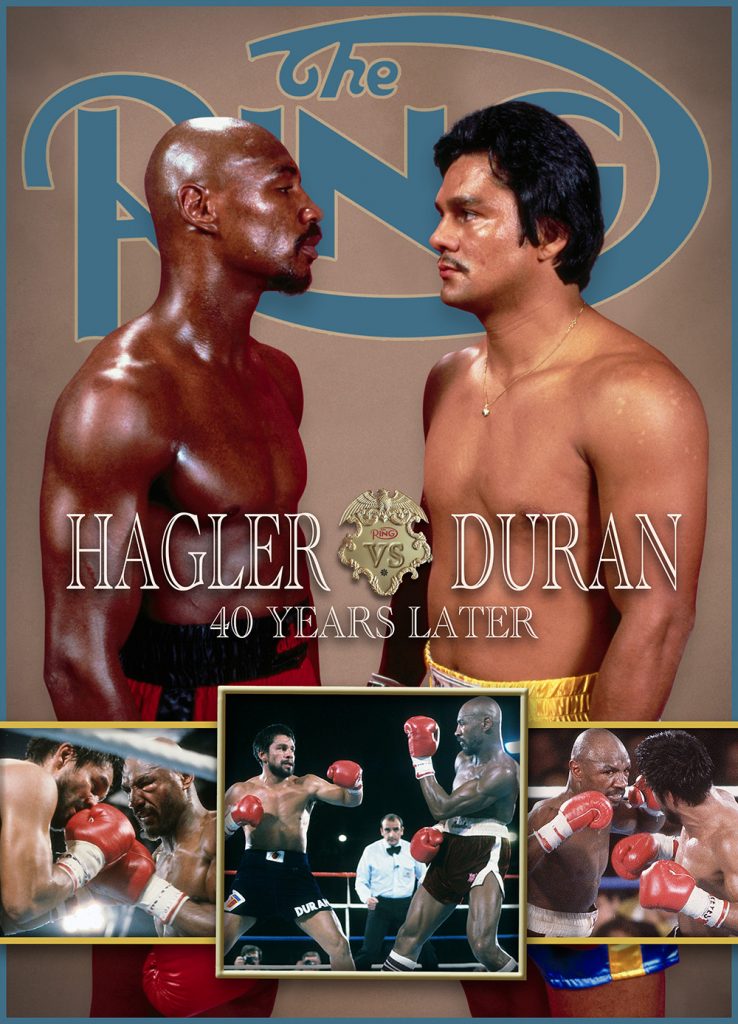Evander Holyfield-George Foreman: The Battle of the Ages remembered
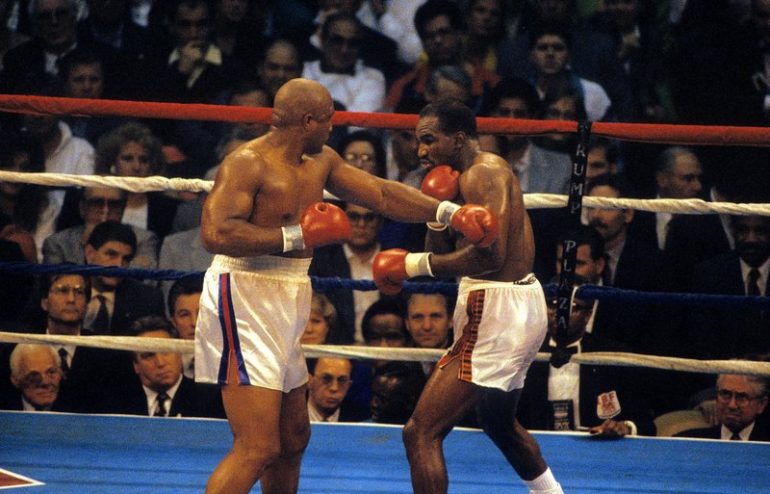
It’s 29 years since Evander Holyfield won a hard-fought 12-round unanimous decision over George Foreman in a fight dubbed “The Battle of the Ages” to retain his IBF, WBA and WBC heavyweight titles at the Convention Center in Atlantic City, New Jersey.
“The Real Deal” lived up to his moniker, after being given a stern test by the great ex-champion. The scores were 117-110, 116-111 and 115-113.
The 28-year-old Holyfield had become the undisputed champion six months earlier when he knocked out an ill-prepared Buster Douglas in three rounds. He freely admits that Foreman wasn’t on his radar at the time.
“I didn’t really want to fight George, I only wanted Tyson,” Holyfield told The Ring. “But my manager, Shelly Finkel, said, ‘Evander, this is about business.’ I said, ‘What do you mean? I’ll make more money fighting Tyson.’ He said, ‘I want you to make $50 million rather than $30 million.’ He said, ‘There are people who believe George will knock you out. Fight George and you could make another $20 million (against Tyson).'”
Foreman, 42 at the time, had returned to boxing in March 1987 after a 10-year layoff and was on a 24-fight winning streak.
“The buildup was what got me in trouble,” said Foreman. “I made sure I did every press conference, every telecom, every TV show. I did more promotion for that boxing match than I had ever done before. I wanted it to sell and it did sell.”
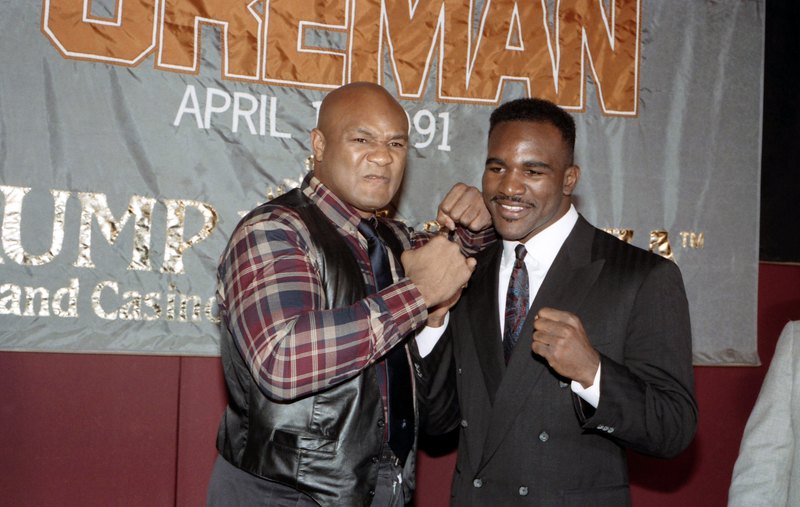
Photo from The Ring archive
Holyfield’s promoter, Main Events, worked in conjunction with Top Rank, who represented Foreman. Both sides brokered a deal with business mogul Donald Trump, who agreed to pay an $11 million site fee. The deal called for both promoters to get $1 million each when the fight was officially signed on January 12, a further $2.5 million on February 9 and the remaining $7.5 million came from the live gate.
But a few months prior, then U.S. President George Bush had gone to war in the Middle East. This would eventually lead to Trump reneging on the initial deal due to a “war clause” in the contract’s force majeure section. The negotiated rights fee was subsequently cut by several million dollars.
“Donald said something about how Arab high rollers, who clearly did not even exist, could no longer attend the fight because of the war,” said Kathy Duva, who was married to promoter Dan Duva and is now in charge of Main Events. “He admitted that money problems with his new Taj Mahal Casino, which was teetering on the brink of bankruptcy, required him to economize.
“He said that he was very sorry, but he had no other choice, as tickets were not selling as well as he had hoped. Dan pointed out that Donald was supposedly a very rich man and that he clearly had a choice. Dan then threatened to sue.
“Donald’s very cool response was to tell us that we had no choice but to go along with his plan to cut the rights fee because ours was a small business. We had committed ourselves to deals with multiple contractors – including the fighters, HBO, dozens of TV networks throughout the world, sponsors, etc. He said that he would tie us up in court for five years. We would undoubtedly be sued by some of our many contractors, harm our relationships with our fighters and lose credibility in the industry. The alternative to accepting his plan was the certain failure of our business. I will never forget the look on my husband’s face when he turned to me and simply said, ‘Oh my God. He’s right.’”
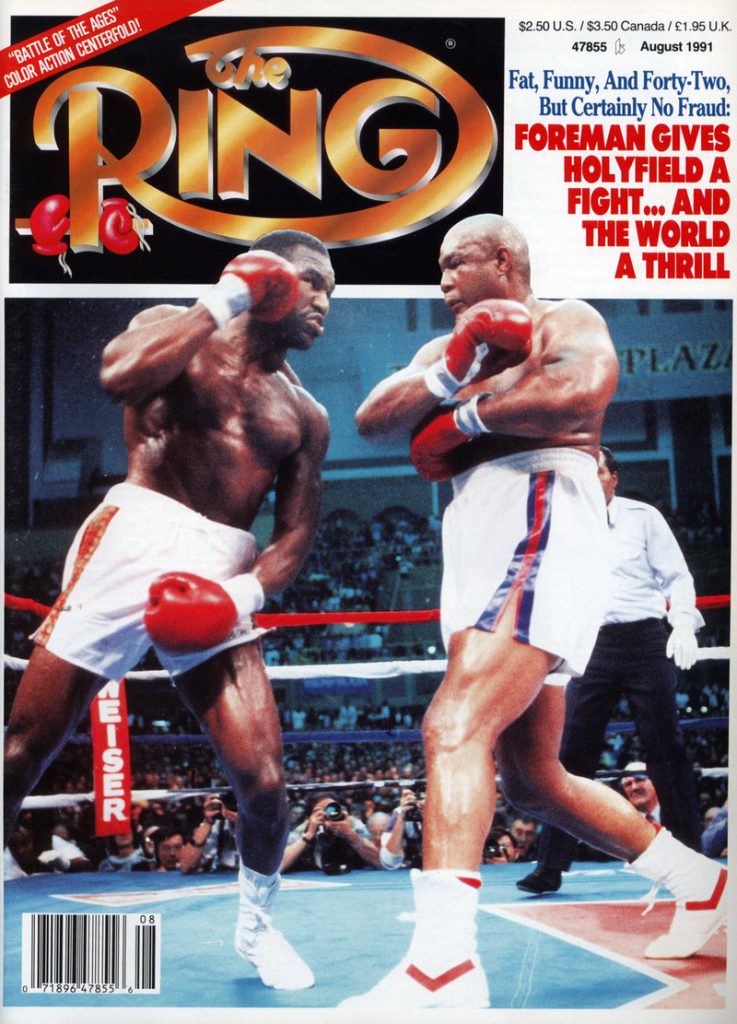 Duva spoke with Arum, who offered to take the fight to Ceasars Palace, Las Vegas. However, Trump remained steadfast that the fight had to take place in Atlantic City.
Duva spoke with Arum, who offered to take the fight to Ceasars Palace, Las Vegas. However, Trump remained steadfast that the fight had to take place in Atlantic City.
“He pointed out that he had rooms full of lawyers on staff, who would be happy to tie us up in court for years,” explained Duva. “We now recognize this as classic Trump: I am going to breach our contract. But I am going to sue you if you try to walk away from our deal as the result of my breach.”
“We spent the next couple of weeks threatening him with legal action and trashing him in the press. In the end, we settled and he shorted the promotion by about $2.6 million.
“He was right, the fight was just too close to change everything. HBO was set to launch its new TVKO pay-per-view platform, Holyfield and Foreman were set to make fortunes. There was no turning back, we had too much to lose.”
Ultimately, both sides ploughed on and converged on Atlantic City in April.
At the weigh-in Holyfield came in at a trim 208 pounds while Foreman, 14 years his senior, tipped the scales at a hefty 257.
Around 17,000 fans, some of whom paid as much as $800 to $1,000 a ticket, ventured to the arena.
Holyfield, a 3-1 pre-fight favorite, was expected to go about his business in emphatic fashion against the much older man. However, Foreman had plenty of success and performed admirably.
“I hit him, and I hit him a lot of times – a lot of times (laughs),” said Holyfield. “George Foreman was the strongest. I could push anybody back, it wasn’t a problem. I couldn’t push George back, you had to go around him.”
Foreman has always been very complimentary when it came to his adversary’s skills.
“Evander was a good boxer,” said Foreman. “He’d wait for an opening and he’d throw combinations. He knew that even if they didn’t do damage, they’d sway the judges. The combinations, he threw them like a middleweight.
“A few times I hit him pretty good. He was great at covering up and stepping out of the way. I’d hit him with a hard shot, rock him a little bit and he’d always hit me back. I’d never seen a guy with that much determination, other than Muhammad Ali, who had more determination than I’d ever seen in my life.
“I think (Holyfield) could have hung with anybody in any era, the guy was that good.”
The winner ultimately felt that the result came down to timing.
“The thing is, George had his turn (as champion) but I hadn’t had my turn,” said Holyfield. “You may win (the title again), but not against me. I was able to beat him, but we both proved a point.
“There were people who felt there was no way in the world he could keep up (for 12 rounds), but he did. I hit him 23 times (in a row) and he just shook it off. I’m like, ‘What do I do now?’ He fought a good fight.”
Foreman vividly remembers that salvo from Holyfield.
“Evander hit me – I don’t know – 25, 30 times,” the former champion recalled. “When he didn’t do anything to me, he threw an elbow to make it look as though I was staggering. It wasn’t even a shot, it was rude and crude, but it’s boxing, and he knew how to sway the judges.”
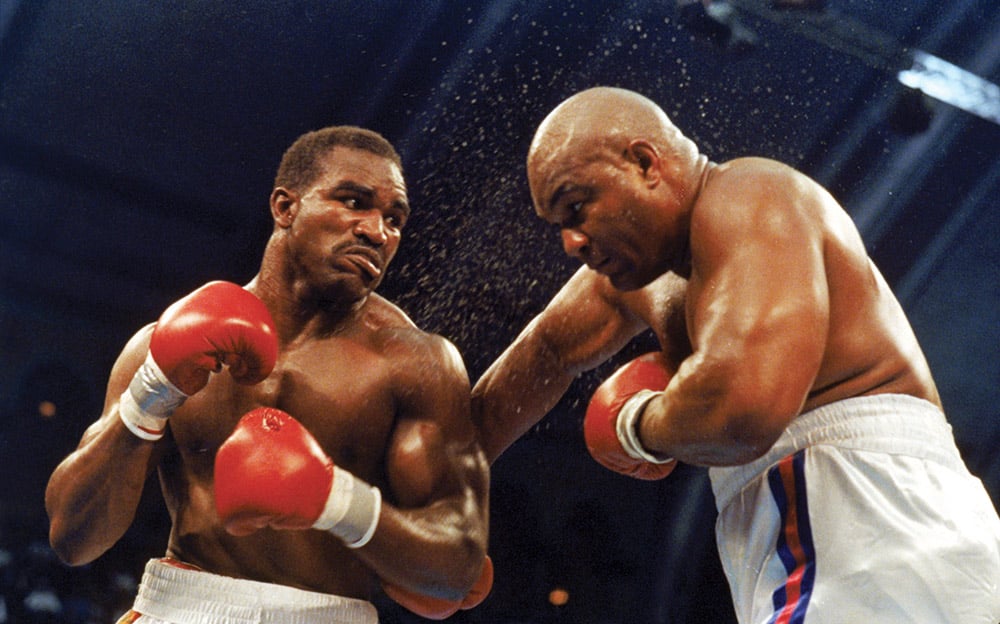
Holyfield earned a guaranteed $20 million and Foreman made $12.5 million. The fight was a huge PPV success, selling a record 1.45 million buys on an average of $37.50 for a $55 million gross. A further $6 million came from closed circuits sales, $2 million from foreign TV rights, and HBO sweetened the pot by paying another $4 million for the repeat broadcast. The live gate was $8 million.
That record stood until Mike Tyson returned from his incarceration to face Peter McNeeley in August 1995, and event which generated 1.52 million buys.
“[Holyfield-Foreman] held the record for pay-per-view sales for a very long time,” said Duva proudly. “We were very happy about the event’s success and the win.”
Holyfield, the only man to win four heavyweight titles, went on to fight a who’s who of his generation, including Riddick Bowe, Michael Moorer, Mike Tyson and Lennox Lewis. He was inducted into the International Boxing Hall of Fame in 2014.
Foreman continued his career and shocked Moorer in November 1994 to become the oldest heavyweight champion in boxing history at 45 years of age. “Big George” was inducted into the Hall of Fame in 2003.
Questions and/or comments can be sent to Anson at [email protected] and you can follow him on Twitter @AnsonWainwright
SUBSCRIBE NOW (CLICK HERE - JUST $1.99 PER MONTH) TO READ THE LATEST ISSUE
